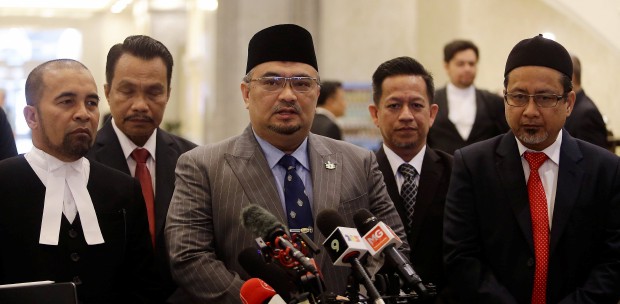KUALA LUMPUR: The Federal Court's decision to annul 16 provisions is exclusively to the Kelantan Syariah Criminal Code Enactment 2019 and not binding to other state enactments, say lawyers.
They are, however, calling for state governments to reassess their syariah enactments, particularly those similar to the annulled provisions.
Lawyer Nizam Bashir said the Federal Court judgment could serve as a reference for the state governments.
He also suggested that the Kelantan state government examined whether the annulled provisions could be reformed in a manner compliant with the Federal Constitution.
Earlier today, the Federal Court, in a landmark ruling, stated that 16 out of 18 provisions under the Kelantan syariah criminal enactment were unconstitutional.
Chief Justice Tun Tengku Maimun Tuan Mat said the legislative powers of the Federal and State governments had been determined by the Federal Constitution in the Federal List and State list.
She said neither Parliament nor the state legislative bodies could enact laws beyond their respective lists.
She ruled that Sections 11, 14, 16, 17, 31, 34, 36, 39, 40, 41, 42, 43, 44, 45, 47, 48 of the Kelantan Syariah Criminal Code (1) Enactment 2019 were null and void.
Syariah lawyer Datuk Akberdin Abdul Kader said the decision to declare 16 provisions under the Kelantan Syariah Criminal Enactment as null and void was exclusively for the provisions that were filed and not binding to other states.
He said the Syariah criminal enactments in other states for the same criminal offences would remain unchanged until someone else raised similar concerns, akin to the case of the mother and daughter duo.
"My opinion is that they cannot cast the net too wide to cover all states. The decision is confined to this particular enactment.
"Certainly, when the Federal Court ruled the provisions as unconstitutional, it indirectly affected other states. The ramifications are tremendous, but the law will still be there until the state government makes a deliberation."
Akberdin said all 16 provisions would automatically be void. Hence, the Syariah public prosecutors would have to cease their investigations and charges for prospective cases.
Regarding past cases that had been judged, he said they would remain as is because the law was in force when the judges delivered their decisions.





